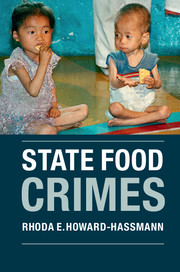7 - The West Bank and Gaza
from Part II - Contemporary Case Studies
Published online by Cambridge University Press: 05 August 2016
Summary
Unlike North Korea, Zimbabwe, and Venezuela, Israel was a democratic state. However, it was also a de facto colonial power. After it was attacked by Egypt, Jordan, Syria, and Lebanon in 1967, Israel conquered the territories of the West Bank (so-called because it is on the west side of the Jordan River) and Gaza. These two areas are generally known internationally as the Occupied Palestinian Territories (OPT), but after 2005 Gaza was not technically occupied, as Israel had withdrawn its settlements from the territory. As will be shown below, however, Israel did maintain effective control of Gaza, not least via the blockade it imposed in 2007. Israel also disputed that the West Bank was occupied, although the consensus of international legal opinion was that its rule did indeed constitute an occupation. Therefore, in order to focus on Palestinians’ right to food, I will refer to these territories throughout as simply the West Bank and Gaza (WBG).
This chapter cannot document all Israeli laws and policies that had the effect of denying Palestinians their right to adequate nutrition: I merely indicate some major factors in the WBG. Nor do I suggest that Palestinians’ own leaders bore no responsibility for these problems. Yasser Arafat, who was Chairman of the Palestine Liberation Organization and the leader in the WBG until his death in 2004 was notorious for his corruption, channeling funds meant for all Palestinians to his supporters (Allen 2006, 15). 84 percent of Palestinians responding to a 2003 survey thought there was corruption in the institutions of the Palestinian Authority (PA), a semi-autonomous body established in 1993 to govern the West Bank (Dowty 2012, 179). The PA was known to be dysfunctional and to rely on patronage and cronyism as well as outright corruption: such corruption may well have contributed to malnutrition in the WBG. Somewhat offsetting this may have been the activities of Islamic charities that provided food aid as well as other services to Gazans (Gordon and Filc 2005, 553; Masters 2012, November 27, 1, 5).
Egypt also contributed to the high rate of malnutrition in Gaza. Fearing terrorist infiltration into the Sinai Peninsula by Hamas, the Islamist political movement that ruled Gaza as of 2007, Egypt sealed its border with Gaza. As a result, Gazans could not buy food and other goods they needed in Egypt.
- Type
- Chapter
- Information
- State Food Crimes , pp. 114 - 132Publisher: Cambridge University PressPrint publication year: 2016



